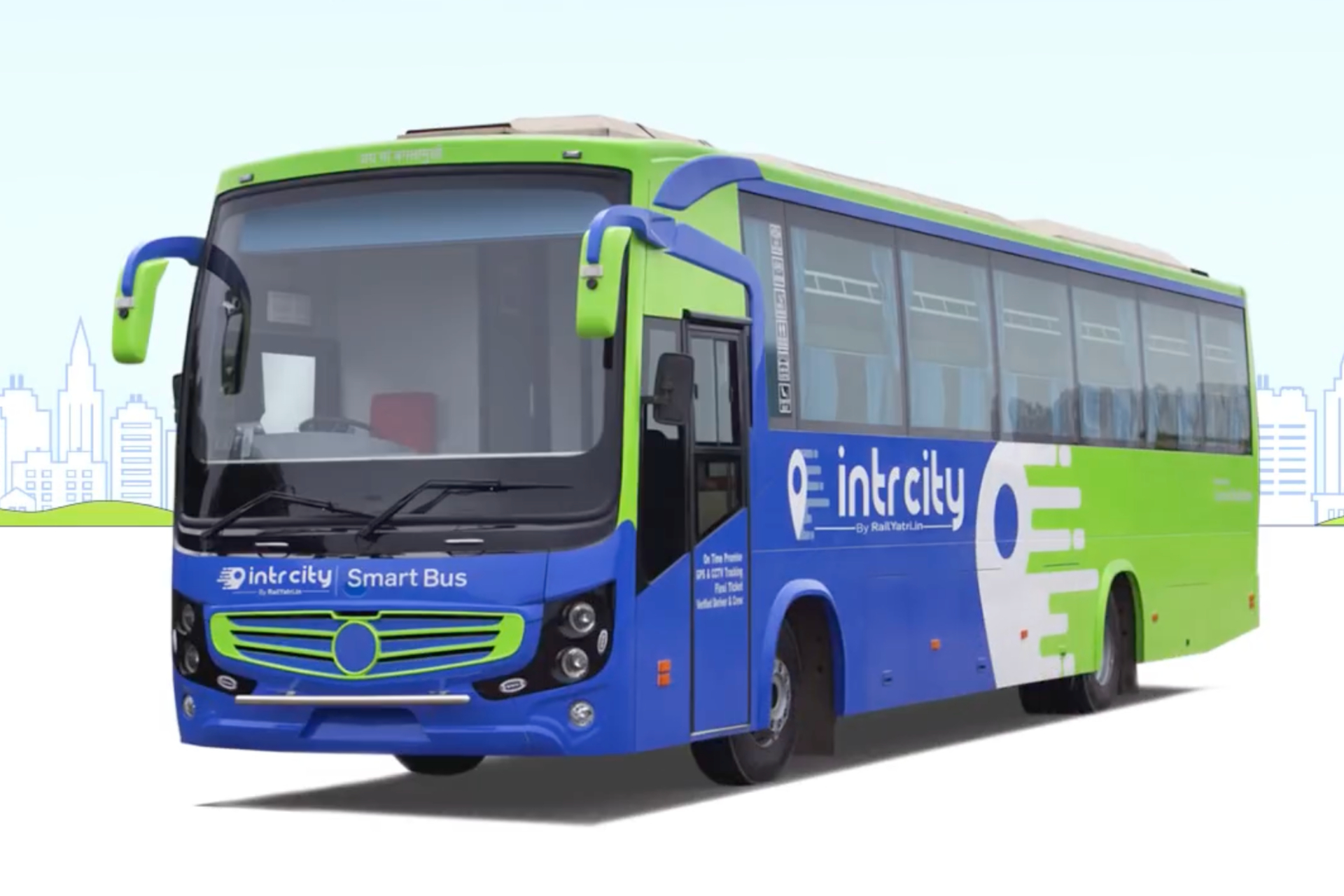
IntrCity SmartBus, a pioneering digital platform dedicated to enhancing intercity bus travel across India, has successfully closed a Series D funding round, raising $30 million. This significant investment, spearheaded by A91 Partners, values the Noida-based startup at $140 million post-money and is earmarked for an ambitious expansion strategy aimed at penetrating deeper into India’s vast network of smaller cities and towns. The capital infusion underscores growing investor confidence in the tech-driven transformation of a traditionally fragmented sector, positioning IntrCity SmartBus as a key player in modernizing India’s crucial road transport infrastructure.
India’s Evolving Mobility Landscape
India is currently experiencing an unprecedented era of economic growth and urbanization, driving a profound transformation in its mobility requirements. Millions of people annually migrate from smaller towns and rural areas to burgeoning metropolitan centers in pursuit of better employment opportunities, higher education, and access to specialized services. This demographic shift has placed immense pressure on existing transportation networks, particularly for intercity travel, which forms the lifeline connecting these diverse population centers.
Historically, India’s intercity travel landscape has been dominated by a combination of an extensive, albeit capacity-constrained, railway system and a vast, yet often disorganized, network of bus services. While the Indian Railways remain a cornerstone of long-distance transit, their inability to consistently meet surging demand, especially for flexible, point-to-point journeys, has opened significant avenues for alternative modes. Recognizing this critical need, the Indian government has embarked on a massive infrastructure development program, notably expanding its national highway network by over 60% in the last decade alone, growing from approximately 56,723 miles to an impressive 90,847 miles. This substantial investment in road infrastructure, part of initiatives like the Bharatmala Pariyojana, has laid the groundwork for a more efficient and comfortable road travel experience, making it a viable and increasingly preferred option for millions.
Despite these infrastructure improvements, the traditional intercity bus sector, particularly state-run services, has often struggled with issues of reliability, inconsistent service quality, and a lack of modern amenities. This gap between rising consumer expectations and the prevailing service standards created a fertile ground for innovators like IntrCity SmartBus to introduce a technology-first, customer-centric approach.
Bridging the Gap: The IntrCity SmartBus Model
IntrCity SmartBus distinguishes itself through an innovative asset-light operational model, a strategy particularly well-suited for the diverse and capital-intensive Indian market. Instead of owning and maintaining its own fleet of buses, the company strategically partners with local bus operators across the country. This collaborative approach allows IntrCity to leverage existing assets and local expertise while integrating its proprietary technology and service standards. This model not only minimizes capital expenditure for the startup but also enables rapid scalability and adaptability across different regions.
The core of IntrCity’s offering lies in its digital platform, which centralizes critical functions from ticket booking to route planning. This sophisticated system employs data analytics to determine optimal service frequency, pinpoint convenient pickup points, establish efficient boarding stations, and even customize seat configurations based on real-time demand patterns. Such data-driven decision-making ensures that resources are allocated effectively, minimizing empty seats and maximizing passenger convenience. The company’s focus on non-discretionary travel, such as journeys for work, education, or essential appointments, which constitute about 95% of its overnight services, highlights its understanding of the market’s core needs. Its typical passenger demographic, spanning 20 to 45-year-olds including small business owners, trainers, government officials, sales professionals, and students, further emphasizes its catering to the backbone of India’s mobile workforce.
To elevate the passenger experience beyond just transportation, IntrCity SmartBus implements a rigorous set of service enhancements. Each bus is staffed with a trained "captain" who serves as an onboard attendant, ensuring passenger comfort and safety. Many vehicles are equipped with essential amenities like washrooms, and the company has invested in establishing air-conditioned boarding lounges at key hubs. These lounges, staffed with dedicated crew, provide a comfortable and secure environment for passengers before departure, fundamentally reshaping the pre-journey experience. This holistic approach is designed to transform the perception of bus travel from a mere utility to a preferred and reliable mode of transport.
Technology at the Core
Technology serves as the backbone of IntrCity SmartBus’s operational excellence and customer promise. Co-founder and president Kapil Raizada emphasizes that "all our buses are cloud-connected," indicating a deep integration of IoT and digital monitoring. The company has developed an in-house bus operating system that continuously monitors various parameters crucial for safety and comfort, including CCTV feeds, ambient sound levels, and temperature controls. This level of real-time oversight allows for proactive problem-solving and ensures a consistent, high-quality experience across its network.
The company’s origins also provide a unique insight into its tech-first approach. Founded in 2019, IntrCity SmartBus initially emerged from the RailYatri brand, which began as an online train ticketing platform. This early foray into digital travel services provided the founding team with invaluable data and insights into intercity travel patterns and the latent demand for improved road-based mobility solutions. While RailYatri now constitutes a smaller portion of the overall revenue, the foundational understanding gleaned from that venture has been instrumental in shaping the SmartBus strategy, which now accounts for a dominant 90% of the startup’s total revenue.
This data-centric approach extends to every aspect of the service. Co-founder and CEO Manish Rathi highlights the extensive "data crunching that goes into understanding what the consumer needs." This analytical rigor informs decisions as granular as bus layout, determining whether a route requires a full sleeper configuration or a hybrid model offering both sleepers and seats, thereby optimizing comfort and capacity for specific demand profiles.
A Journey Through Time: Evolution of Intercity Travel
For decades, intercity bus travel in India was largely characterized by an unorganized market, a myriad of private operators with varying service standards, and a notable lack of digital integration. Passengers often relied on physical ticket counters, word-of-mouth recommendations, and endured journeys with unpredictable schedules and minimal amenities. The advent of online travel agencies initially focused on flights and trains, leaving the bus sector largely untouched by digital transformation.
The late 2000s and early 2010s saw the nascent rise of online bus ticketing platforms, which began to bring some order to the booking process. However, these platforms primarily served as aggregators for existing operators, with limited ability to influence the actual service quality on the ground. The true digital overhaul, combining online booking with standardized operational control and technological integration, began to gain momentum more recently. IntrCity SmartBus is at the forefront of this next wave, not just facilitating bookings but actively shaping the travel experience from end-to-end.
The government’s sustained focus on improving road infrastructure, including the construction of expressways and upgraded national highways, has been a critical enabler. These modern roads reduce travel times, enhance safety, and allow for more comfortable journeys, making the proposition of a premium bus service far more appealing than it once was. This confluence of digital innovation and infrastructure development has created a perfect storm for companies like IntrCity to thrive.
Strategic Growth and Market Positioning
IntrCity SmartBus currently operates approximately 600 daily bus trips, serving between 20,000 and 25,000 passengers each day, translating to nearly 700,000 monthly travelers. The platform collaborates with over 50 local bus operators, covering average trip distances exceeding 311 miles. Its strategic hub-and-spoke model is built around 15 to 16 key economic hubs across India, with operations already established in 13 to 14 of these, spanning 15 states. This extensive network stretches across northern India, from Jammu to Uttarakhand, and covers significant portions of the south, including Karnataka, Tamil Nadu, and Andhra Pradesh, demonstrating a broad geographical footprint.
Financially, IntrCity SmartBus has demonstrated robust growth, with revenues expanding by 67% year-over-year to ₹5 billion (approximately $57 million) in the last fiscal year. Projections indicate continued upward trajectory, with anticipated revenues surpassing ₹7 billion (around $79 million) in the current year. The company has maintained an "EBITDA-positive" status for the past couple of years and is aiming for full profitability this year, a significant milestone for a scaling tech startup in a competitive market.
The freshly secured funding will be instrumental in executing the company’s "deeper and wider" expansion strategy. This involves not only extending its network into more Tier 2 and Tier 3 cities but also making substantial investments in enhancing customer experience, bolstering safety protocols, and upgrading its sophisticated fleet management technology. The ambition is clear: to fundamentally shift the perception of bus travel in India. As Raizada articulated, addressing the challenge that "buses are seen as a lesser cousin to trains and flights," IntrCity SmartBus aims to "make buses the preferred mode of travel in India."
Riding Towards the Future: Impact and Outlook
The Indian intercity bus market is experiencing a significant boom, as evidenced by a recent report from online bus ticketing platform RedBus, which recorded over 223 million intercity journeys in the financial year 2025. The sector saw the addition of more than 72,000 new intercity routes and approximately 6,400 new buses last year, collectively expanding daily seat capacity by an estimated 265,000. This vibrant growth signals a robust and evolving market.
IntrCity SmartBus is not alone in this burgeoning sector. A new wave of tech-enabled intercity bus startups, including ZingBus, LeafyBus, and FreshBus, are also vying for market share. Furthermore, the entry of European giant FlixBus into the Indian market early last year underscores the global recognition of India’s potential in road mobility.
Despite the escalating competition, IntrCity SmartBus leadership maintains a firm focus on execution over competitive posturing. Rathi emphasized, "India is a very different beast when it comes to road travel. If something is going to go wrong, it will go wrong." He added, "We’re not a network-first company. We’re an operational-excellence-first company." This philosophy highlights the critical importance of reliable, consistent, and safe operations in a market where logistical challenges and unexpected disruptions are common. By prioritizing operational rigor and leveraging technology to mitigate these challenges, IntrCity SmartBus aims to cement its position as a leader in transforming India’s intercity bus travel into a modern, reliable, and preferred mode of transport for millions. The latest funding round provides the necessary fuel to accelerate this ambitious journey, setting a new benchmark for quality and convenience on India’s highways.



